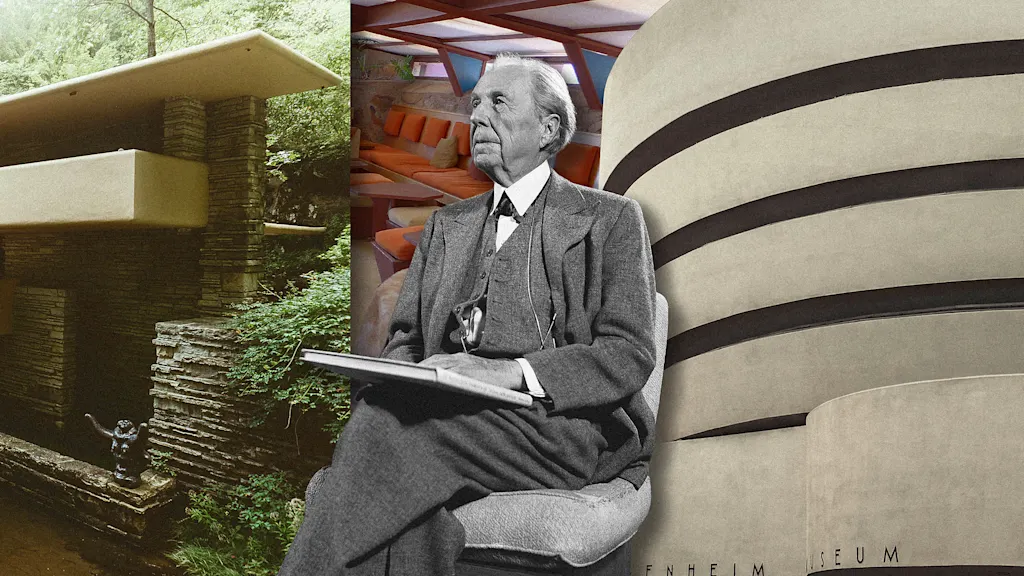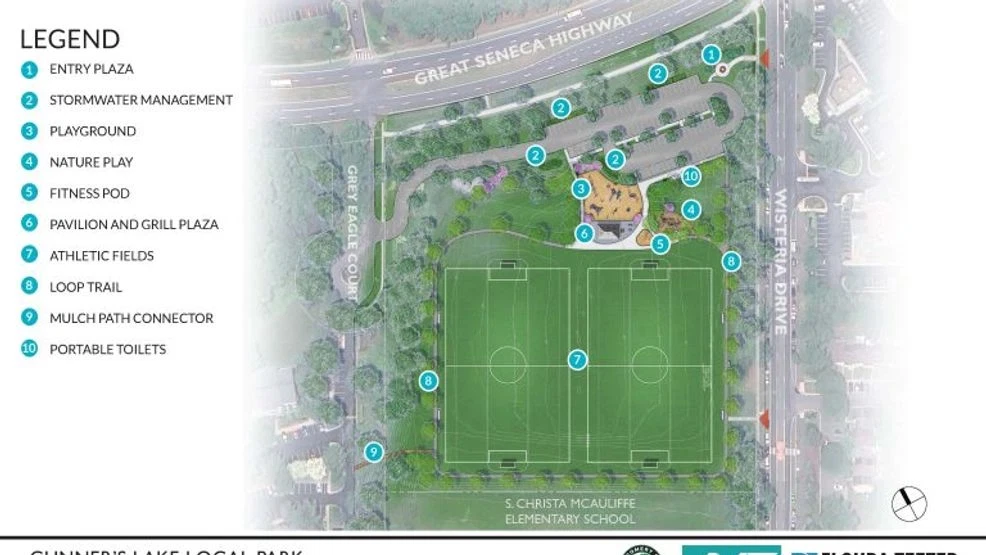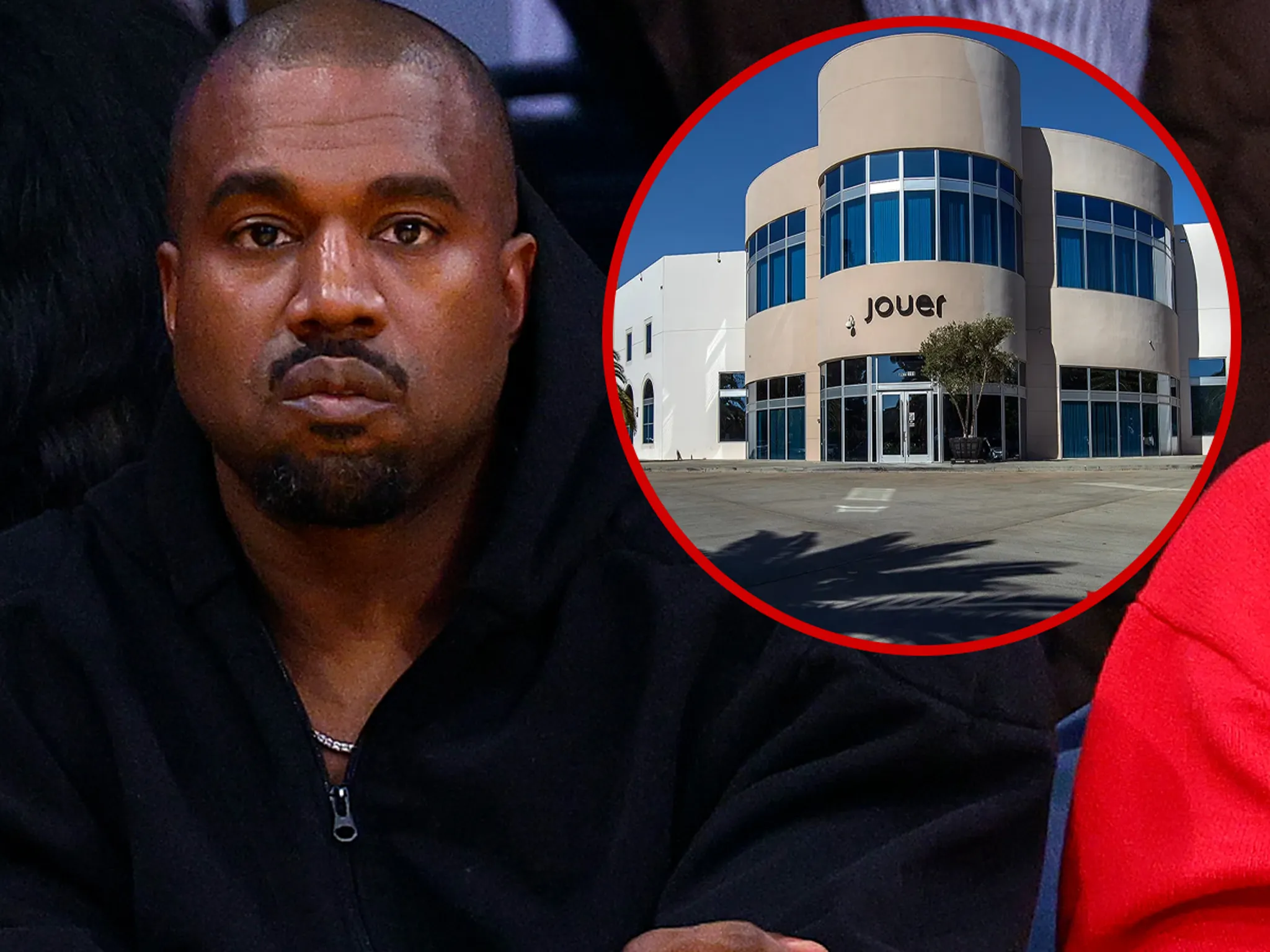
Despite being one of the most celebrated and influential architects of all time, Frank Lloyd Wright has never had what may be one of the top indicators of cultural importance: a Hollywood biopic. That may soon change, as the Frank Lloyd Wright Foundation has recently struck a licensing deal with Hollywood production company Galisteo Media to bring Wright’s story to the big screen as a movie.
“He was the greatest American architect. He was incredibly ambitious and headstrong and visionary. He also was a flawed person, and his life was filled with triumph and tragedy,” says Rob Rosenheck, cofounder of Galisteo Media. “This is a big gap in American popular culture that we don’t have a feature film about Frank Lloyd Wright.”
Galisteo’s deal focuses on the 1920s, a period in Wright’s life when he relocated to Los Angeles and embarked on a series of innovative residential designs. Designed using novel textured concrete blocks, these homes came to be known as Mayan revival architecture and launched a nationwide trend throughout the ’20s and ’30s.
This was also a turning point in the life of Wright, who died in 1959 at the age of 91. Wright had gone West in his early 50s in the wake of the devastating 1914 tragedy in which his mistress and six other people were murdered in Wright’s Wisconsin home, Taliesin.
Subscribe to the Design newsletter.The latest innovations in design brought to you every weekday
Privacy Policy
|
Fast Company Newsletters
“The murders at Taliesin are a critical moment in Wright’s path,” says Rosenheck. “They’re an essential part of the story, and they are the inciting incident that propels him toward coming to Los Angeles.”
Wright’s time in L.A. was transformative, leading to a reinvention of his approach to architecture that resulted in some of his most famous work, from the Mayan revival homes to the Guggenheim Museum and Fallingwater.
Rosenheck and Gailsteo Media cofounder Cindy Capobianco are intimately familiar with Wright’s works from this era. Since 2019, they’ve owned and lived in the Ennis House, a Wright-designed private residence from 1924 located in the Loz Feliz area of Los Angeles. Known for its appearance in the film Blade Runner, it was one of the four textile block homes Wright built in the Los Angeles area during this period.
When Rosenheck and Capobianco bought the house from billionaire Ron Burkle for $18 million, it was the highest price ever paid for a Wright-designed residence. And the house had some baggage. Its concrete block construction method, while innovative in the early 1920s, was prone to structural decay, especially after sustaining significant damage in the 1994 Northridge earthquake. Rosenheck and Capobianco, founders of Lord Jones, an early cannabis company that helped establish the market for cannabis and CBD-infused health and wellness products, had the means to keep the historic house in good shape.
The couple also has experience in the film industry. Their production company was behind Lover of Men, a 2024 documentary film exploring Abraham Lincoln’s romantic relationships with men. Living in a Wright house and learning more about his life and work, they were surprised to realize there had never been a feature film about him. “It just was natural for us to think about producing a film about the life and work of Frank Lloyd Wright,” says Rosenheck.
As stewards of the Ennis House, Rosenheck and Capobianco have an ongoing relationship with the Frank Lloyd Wright Foundation. They began talks about a potential licensing deal last year. In July, the two groups announced that they’d reached a deal for Galisteo to have exclusive rights to produce content about Wright’s life, focusing on the period of his life in Los Angeles. Galisteo declined to share details on the financial terms of the deal.
advertisement
“Engaging in new media is not only beneficial in terms of shining a light and making people aware of Wright and his significance, and really ongoing contributions to architecture and the built environment. But it’s also resonant with Wright himself. He was a person that engaged robustly with media,” says Joseph Specter, CEO and president of the Frank Lloyd Wright Foundation.
That ethos is behind other partnerships the foundation has made in recent years. The organization has made a varied range of licensing deals celebrating and expanding the work of Wright, collaborating with brands including Airstream, Steelcase, and New Balance. Specter says this is the first licensing deal focused specifically on storytelling. “The similarities between those licensing deals and a project like this are about creating awareness, excitement, and deeper understanding about who he was, and how his work even affects our lives today,” says Specter.
A former professional opera singer who ran the Arizona Opera for a decade before joining the Frank Lloyd Wright Foundation earlier this year, Specter says he is not nervous about handing Wright’s life story to filmmakers. “What I found most exciting about that work was to empower people who were creators, directors, designers, choreographers, and ultimately performers to do their best work,” he says.
Rosenheck says Galisteo has developed a treatment for a feature film about Wright and he has been meeting with writers, directors, and actors to try to find the right collaborators for a project. He’s optimistic a film could be in the works soon, as well as other projects, from TV series to podcasts.
“Everyone’s aware of Frank Lloyd Wright. Everyone’s aware that this story has not yet been told, and it’s been on people’s wish lists,” he says. “Every time we talk to an actor or a director or a writer, everybody has a vision for it, everybody has passion for it. And everybody understands the stakes that are involved in getting the story right.”



